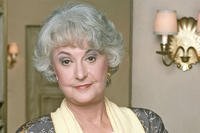When Henry Lee III returned home to Leesylvania, Va., after his 1773 Princeton graduation, it was to prepare for war.
The tall, blond young man whose equestrian prowess would earn him the sobriquet "Lighthorse Harry" joined the Continental Army cavalry as a captain in the Fifth Virginia Dragoons. He soon became known for his skill in guerrilla warfare. Lee's lightning raids against enemy supply chains rapidly led to several promotions.
Young Lighthorse Harry attracted the attention of his illustrious commander George Washington after Lee's successful surprise attack at Paulus Hook, N.J. The heavily manned British garrison there was under command of one Maj. Sutherland, and Washington's "principal fear," as he later wrote to Lee, was that retreat would be impossible — the garrison had to be taken by "surprize." Lee ordered his soldiers under penalty of death to maintain complete silence as they forded a stream and charged with fixed bayonets to take more than 150 British prisoners, losing only one man (some accounts say two). Some fellow officers accused Lee of incompetence and tried to make him face a court-martial until he was able to clarify Washington's orders for secrecy. After his exoneration, he was given a Congressional Medal.
After the British defeat at Yorktown, Lee resigned his commission. Part of the Lee family of Virginia, whose members included ardent patriot Richard Henry Lee, he returned home to marry his cousin, the "divine Matilda" Lee, and moved to her family plantation, Stratford Hall. No farmer, Lighthorse Harry embarked on a political career that began in the Virginia House of Delegates.
After Matilda died prematurely, Lee served three one-year terms as governor of Virginia, in the course of which he met and married Ann Hill Carter of Shirley Plantation. They had several children, including future Confederate Gen. Robert E. Lee.
Lighthorse Harry Lee conducted the military operations for President Washington's ordered march against the insurrectionists of the Whiskey Rebellion in 1794. Lee held his commander-in-chief in such high regard that he penned the famed eulogy for Washington that began, "First in war, first in peace, and first in the hearts of his countrymen ..."














